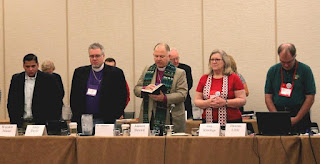By now, I'm sure there is no one out there who is in the dark on the political views of Dan Cathy, the president of Atlanta-based Chick Fil-A restaurants. Most people in the LGBT community have known for years that the fast-food chain was serving customers deep-fried homophobia with a side Biblical literalism. But when Dan Cathy was asked point blank if the company supports efforts to undermine marriage equality in America, he said, "Guilty as charged." This has ignited a fire under the butts of the mayors of Boston and Philadelphia and other cities to denounce Chick Fil-A and even block efforts by the company to spread its franchise into those northern corners where Dunkin' Donuts is THE fast-food of choice. Seriously, we all know that "Boston runs on Dunkin'."
There is a call by queer organizations to boycott Chick Fil-A. Meanwhile, former Republican presidential candidate and off-the-chart conservative Rick Santorum is tweeting from his local Chick Fil-A messages about how "Mmm-mmm good" it is to eat food that funds hate groups.
Obviously, I am not going to be eating one of their chicken sandwiches with waffle fries any day soon. But me boycotting Chick Fil-A will have about as much impact as me promising that I won't join Westboro Baptist Church. I haven't eaten at Chick Fil-A but one or two times and that was back in 1990. Frankly, it wasn't that good, folks.
What's been interesting is watching straight friends on Facebook wrestling with their appetites versus' their loyalty to their buddies who are LGBT. In some cases, it's been shocking to see the power of deep-fried breaded chicken parts. I've seen where someone actually apologized to their LGBT friends, but they weren't willing to give up a chicken sandwich to stand in solidarity against blatant bigotry.
(Please know that this person is a friend-of-a-friend, not my friend. Really. Not. My. Friend.)

Seriously, can a friendship be bought off by a chicken sandwich and a bag of waffle fries?!
Some have argued with me and others on postings that we shouldn't be trying to impose our beliefs on a business. One woman actually tried to tell me that Dan Cathy isn't homophobic because he never said he was afraid of gay people, and that I should read Pope Paul VI's papal encyclical on abortion to understand Cathy's position about human sexuality. Sorry, but if there is one institution that I am unwilling to receive instruction from on matters of the body and sex, it's the Roman Catholic Church. I wasn't raised an Episcopalian for nuthin'.
If you, or "friends" of yours are still trying to figure out if they can really give up a chicken biscuit for a cause, let me give you some of the facts about where those dollars and change spent at a Chick Fil-A will end up:
Chick Fil-A's charitable arm is called WinShape Foundation, which in 2009, had a bank of more than 7-point-8 million dollars. From that pot, organizations such as Exodus International, which has actively helped support the "Kill the Gays" bill in Uganda, got money. So did the Family Research Council. And Eagle Forum, founded by anti-woman, anti-gay, anti-you-name-it Phyllis Schlafly, also got some money. The biggest benefactor was the Marriage and Family Legacy Fund, which received more than $994,000 from WinShape. Altogether, WinShape donated more than 1.7 million dollars in 2010 to anti-gay causes. And where did they get that money? From the purchase of lots of deep-fried chicken on a bun, and bags of waffle fries.
Is a friendship so easily sold away?
Mr. Cathy can hold whatever bigoted views he wants. We don't have to eat his food. Please, think of your friends, your colleagues, your family members. Eat More Cow. Chow down on a fresh salad. Don't trade my right to life, liberty and the pursuit of happiness for a chicken sandwich.









